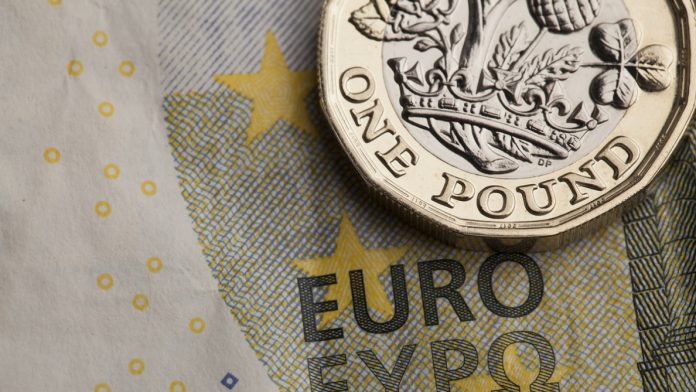- Pound (GBP) struggles on BoE doubts
- UK central bank could ease hiking cycle
- Euro (EUR) steadies after two days of gains
- German PPI, EZ industrial production
The Pound Euro (GBP/EUR) exchange rate is edging a few points higher on Wednesday. The pair settled -0.15% lower on Tuesday at €1.2047 after trading between €1.2005 – and €1.2084. At 05:45 UTC, GBP/EUR trades +0.03% at €1.2049.
In the previous session, the pound came under pressure despite rising inflation and amid increasing doubts about what the Bank of England will do in the next monetary policy meeting. While the BoE has already hiked rates for the last three consecutive meetings, there are growing doubts over whether the central bank will be able to hike rates again amid fears of the UK economy being tipped into recession.
Data last week showed that the UK inflation jumped to 7%, its highest level in three decades. Even so, the markets have reined in rate hike expectations.
There is little on the economic calendar to influence the pound today. Instead, investors will look ahead to a speech by BoE chief Andrew Bailey for further clues on what the BoE could do next.
Friday sees the release of PMI data and retail sales, which could shed more light on how well the UK economy is holding up as prices surge.
The euro managed to claw higher in subdued trading conditions across most of the day, even after the IMF slashed the economic growth forecast for the eurozone due to spiking food and energy prices amid the ongoing Russia Ukraine war.
Today the economic calendar is slightly busier with German wholesale inflation data released, as measured by the producer price index (PPI). Analysts expected PPI to reach a new record high of 29.1% year on year in March as the Russian invasion of Ukraine sent energy prices higher.
Hot PPI inflation could boost expectations of a more hawkish ECB.
Eurozone industrial productions will also be in focus and are expected to show a rebound in February, rising 0.7% month on month in February and falling -by 1.3% in January.





